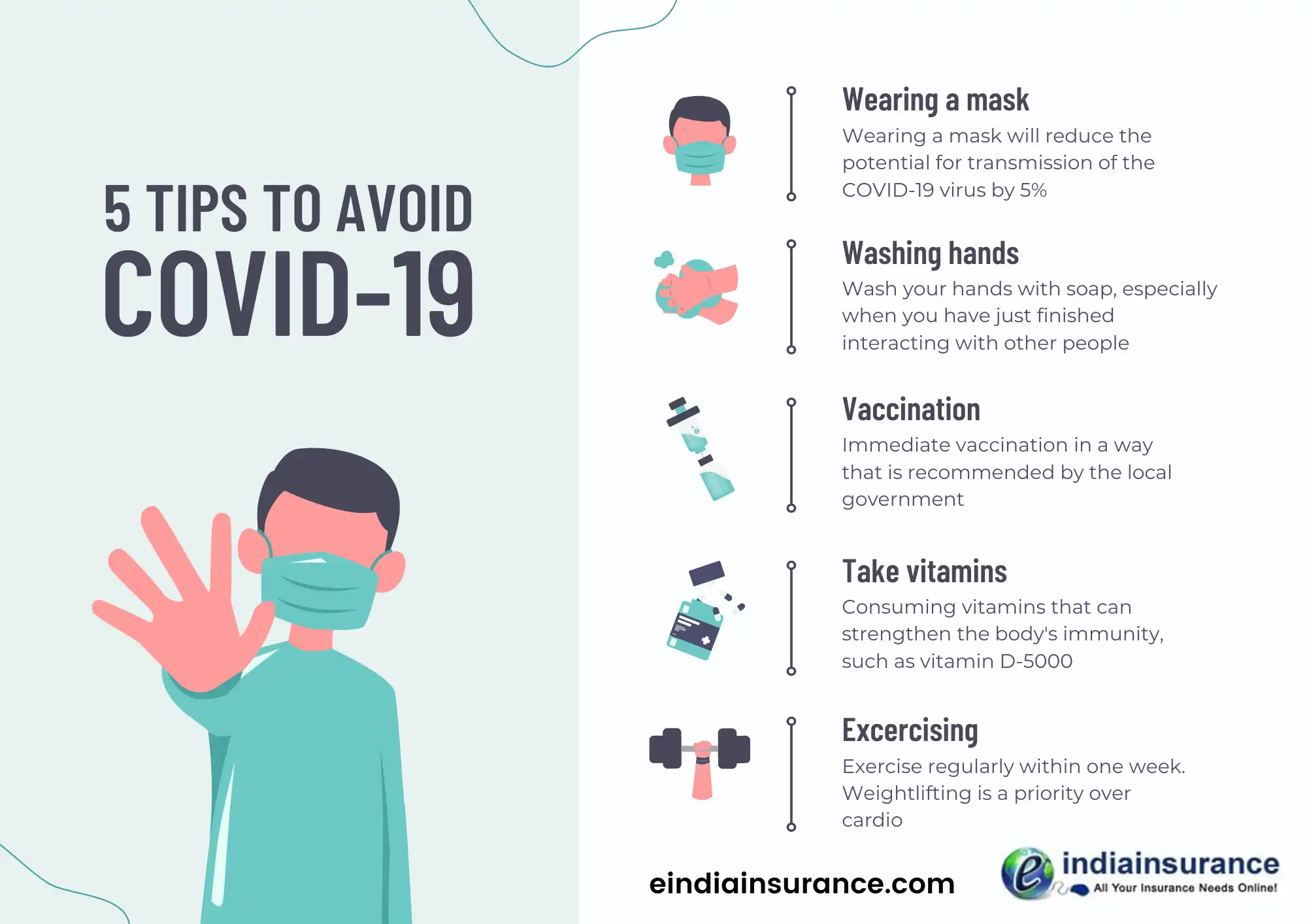Tips for buying best mediclaim insurance
India health insurance tips and tricks to choose the best medical insurance in India
Know more »
| Corona Kavach | Corona Rakshak | |
|---|---|---|
| Companies selling these plans | General (Non-life) and Standalone Health Insurance companies | Life, General (Non-life) and Standalone Health Insurance companies |
| Product Type | Available on Individual and Family Floater Basis | Available only on Individual Basis |
| Coverage Basis | 1. Base Cover on Indemnity Basis- Covid 19 Hospitalization cover 2. Optional Cover on Benefit Basis- Hospital Daily Cash |
Coverage only on Benefit Basis |
| Sum Insured | ₹50,000/- (Fifty Thousand) to ₹5,00,000/- (Five Lacs) (in the multiples of fifty thousand) | ₹50,000/- (Fifty Thousand) to ₹2,50,000/- (Two Lacs Fifty Thousand) (in the multiples of fifty thousand) |
| Benefit Payable | Actual incurred hospitalization expenses upto sum insured (eg. If SI is ₹5lacs and actual medical expenses incurred is ₹3 lacs, claim payable is ₹3 lacs) |
100% of sum insured benefit payable on Covid 19 diagnosis irrespective of expenses incurred. (eg. If SI is ₹2lacs and actual medical expenses incurred is ₹1.5 lacs, claim payable is ₹2 lacs) |
| Eligibility of Insured | Adults : Persons between the age of 18 to 65 years can be the insured member under the policy. Children : Children upto the age of 25 years Self, spouse, Parents, Parents-in-law and Dependent Children are the family members that can be covered |
Adults : Persons between the age of 18 to 65 years can be the insured member under the policy. |
| Waiting Period | 15 days | 15 days |
| Policy Period Options |
|
|
| Premium payment | Single Premium | Single Premium |
| Benefit Payable | Medical Expenses of Hospitalization related to Covid 19 (upto to the Sum Insured chosen) on diagnosis shall be payable under this plan | Lump sum benefit equal to 100% of the Sum Insured shall be payable on positive diagnosis of COVID-19, requiring hospitalization* for a minimum continuous period of 72 hours. |
| Pre Hospitalization Expenses | 15 days | |
| Post Hospitalization Expenses | 30 days | |
| Sub-limits |
|
|
| Renewability | Lifetime Renewal | Lifetime Renewal till claim is paid. Once claim is paid, policy terminates |
| Home Care Treatment Expenses | Cost of treatment incurred by the Insured person on availing treatment at home for Covid on positive diagnosis up to 14 days per incident, which in the normal course would require care and treatment at a hospital but is actually taken while confined at home. | |
| Hospital | For the purpose of this policy any set-up designated by the government as hospital for the treatment of Covid shall also be also considered as hospital. | For the purpose of this policy any set-up designated by the government as hospital for the treatment of Covid shall also be also considered as hospital. |
| Premium | Standardised across India for all geographies | Standardised across India for all geographies. |
| Plans (6.5 months – 195 days) Premiums in ₹ INR (without GST) |
Corona Kavach | Corona Rakshak | ||
|---|---|---|---|---|
| Sum Insured / Age of Customer | 40 years | 65 years | 40 years | 65 years |
| ₹ 50,000 | 410 - 420 | 655 – 796 | 359 - 923 | 638 – 923 |
| ₹ 2,50,000 | 1130 - 1333 | 1356 – 2679 | 1795 – 4615 | 3188 - 4615 |
| ₹ 5,00,000 | 1690 – 2,317 | 2027 - 5193 | ||
| Existing Coverage | Plan Recommended |
|---|---|
| Have an existing Health Insurance Indemnity Plan. All current health plans cover expenses relating to Corona | Corona Rakshak |
| No current Health Insurance coverage at all | Corona Kavach |
It is important to mention here that if you’re purchasing a new India health insurance for Covid-19 policy, then the Coronavirus related treatment will not be covered for the mandatory waiting period, which is typically 30 days. Post this it will be covered. Also, if the customer is unfortunately infected with the Coronavirus while applying for the policy, the same will be treated as a pre-existing disease/condition and remain excluded from the coverage.
Under the Covid-19 health insurance coverage will be part of hospitalization expenses which include in-patient hospitalization treatment, ICU charges and diagnostic and other test charges.

Yes. All existing health policies cover Coronavirus as per the directive from IRDAI. If one wants to buy a new health insurance plan, they can do so and the policy will cover Coronavirus treatment after the mandatory waiting period, provided the insured didn’t have the illness while purchasing the plan.
Yes, one can cancel the same within the free look period, which normally is for 15 days. After that it will be cancelled and premium refunded, subject to no claim and on a prorata basis.
Yes. Existing health insurance policies will cover treatment expenses for Coronavirus treatment as per the directive from IRDAI, subject to completion of the mandatory waiting period.
Expenses relating to in hospital treatment, ambulance expenses, diagnostic tests, medical evacuation benefits if you’re unable to receive treatment at your current location, quarantine related expenses, if recommended by the attending doctor.
Coronavirus health insurance comes with a waiting period of 30 days from the date of inception of the policy.
Most clinics and hospitals in India are conducting coronavirus tests for free or for a subsidised cost. However, hospitalisation charges, including room rent, surgical procedures and medical expenses are to be borne by patients. This is where a health insurance policy comes into play. If you have an existing policy, your hospitalisation expenses will be covered by the insurer.
If you don’t have an existing health insurance policy, you should go ahead and buy one immediately. Any standard health insurance policy will help covering your hospitalisation and medical, testing and quarantine expenses.
All health plans by insurance companies in India offer both cashless and reimbursement claims processing for all treatments including Coronavirus. While cashless claims can be availed for treatment at a network hospital of the insurance company, a reimbursement claim can be made for treatment at any non network hospital, provided the insured settles all the bills with the hospital and then makes a claim with the insurer on submission of all related documents.
One has to follow the normal process like any other sickness/accident related claim. Get in touch with the Assistance Company (TPA) or Insurance company or their Toll free number, and register a claim providing them the policy details and the information relating to the claim. Refer your policy document or health card for the Assistance related toll free information.
Offcourse, one can go ahead buy a coronavirus health insurance online. This link will provide all related information on the existing health insurance plans which offer this coverage. Enter the required insurance related personal and health details and then pay the insurance premium online. Post this, the insurance company will issue you your policy.
| Corona Kavach | Standard Health Insurance Policy | |
|---|---|---|
| What is covered | Only COVID-19 treatment | Covers all illnesses including COVID-19 |
| Sum Insured | ₹50,000 till ₹5 lacs | ₹50,000 till ₹100 lacs |
| Coverage Options | Individual & Family Floater | Individual & Family Floater |
| Minimum & Maximum Entry age limit | Minimum Entry : 18 years Maximum Entry : 65 Years |
Minimum Entry : 18 years Maximum Entry : 70 Years (under Senior plans) |
| Lifetime Renewability | Not applicable | Available |
| Policy Term | Three Fixed Options of 3.5 / 6.5 / 9.5 months | Options of 1 year to 3 years |
| OPD & Day Care Treatment | Not Covered | Covered |
| Waiting period | 15 days | Minimum 30 days |
| Pre-existing disease | Not covered | Covered after certain waiting periods based on ailments |
| Home Care Treatment | Covered | Not Covered |
| Additional Expenses like PPE Kit, gloves, mask and such similar other expenses | Covered | Not covered |
| Pre-policy medicals | Not applicable | Applicable |
| Premium payment term | Single | Instalment option available |
| Premium | Standard across India | Geographical premium variations |

India health insurance tips and tricks to choose the best medical insurance in India
Know more »Find out the different reasons why a medical insurance claim is rejected, Cashless hospitalization, Reimbursement.
Know more »Factors for medical insurance in India, How much is the premium and the coverage offered by India health insurance plans.
Know more »You can buy insurance online by using a credit/debit card, UPI, direct funds transfer using NEFT or RTGS or by using a cheque.
Know more »Insurance customers can quickly compare the details of benefits offered under Indian mediclaim insurance policies.
Know more »Compare Indian health insurance policies, Health insurance India comparison.
Know more »Health insurance blogs - Information on health or medical insurance coverage in India.
Know more »FAQ related to Indian health insurance. Get answers for any health insurance questions.
Know more »Every individual must buy insurance and for themselves and members of their family, based on their requirements.
Know more »Family floater is one single policy that takes care of the hospitalization expenses of your entire family.
Know more »A typical Top Up Health Insurance plan is an additional coverage for an individual who is already covered under an existing Health policy.
Know more »Accident, is an unexpected event, typically sudden in nature and associated with injury, loss, or bodily harm.
Know more »